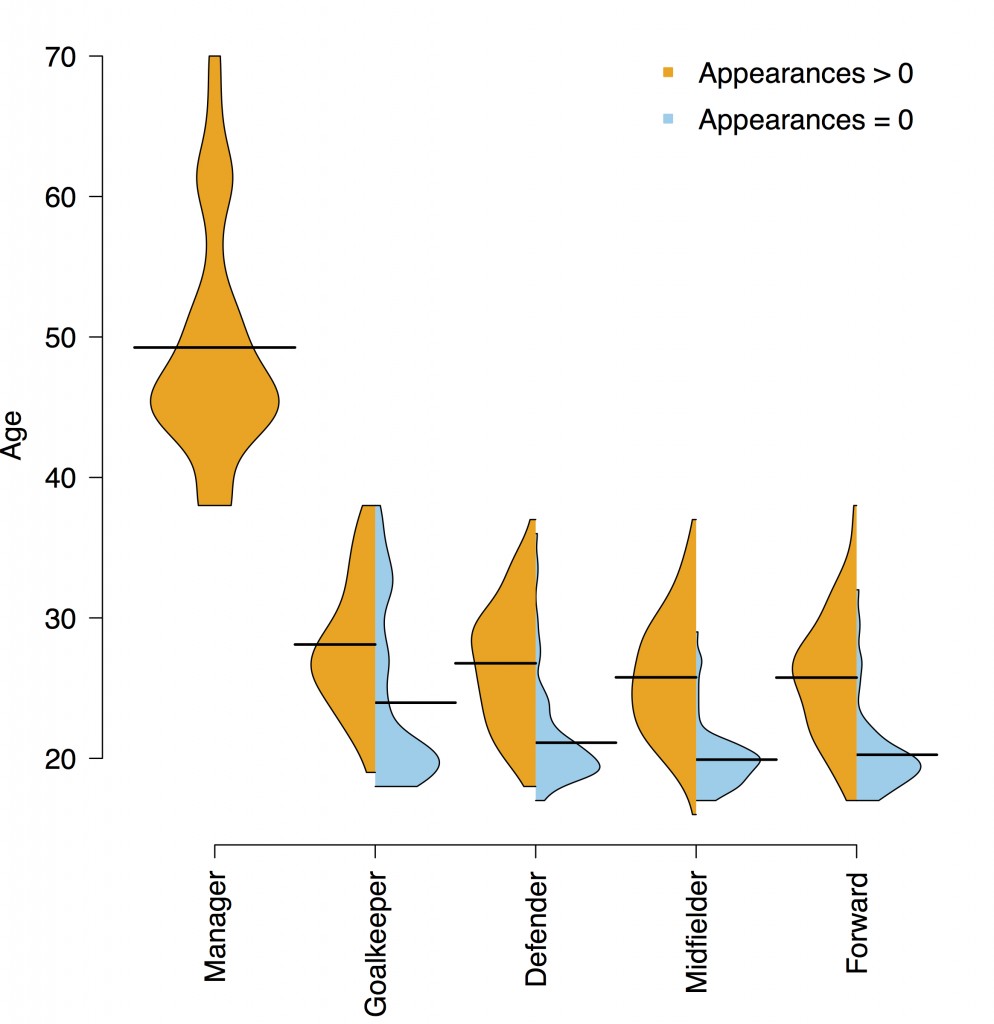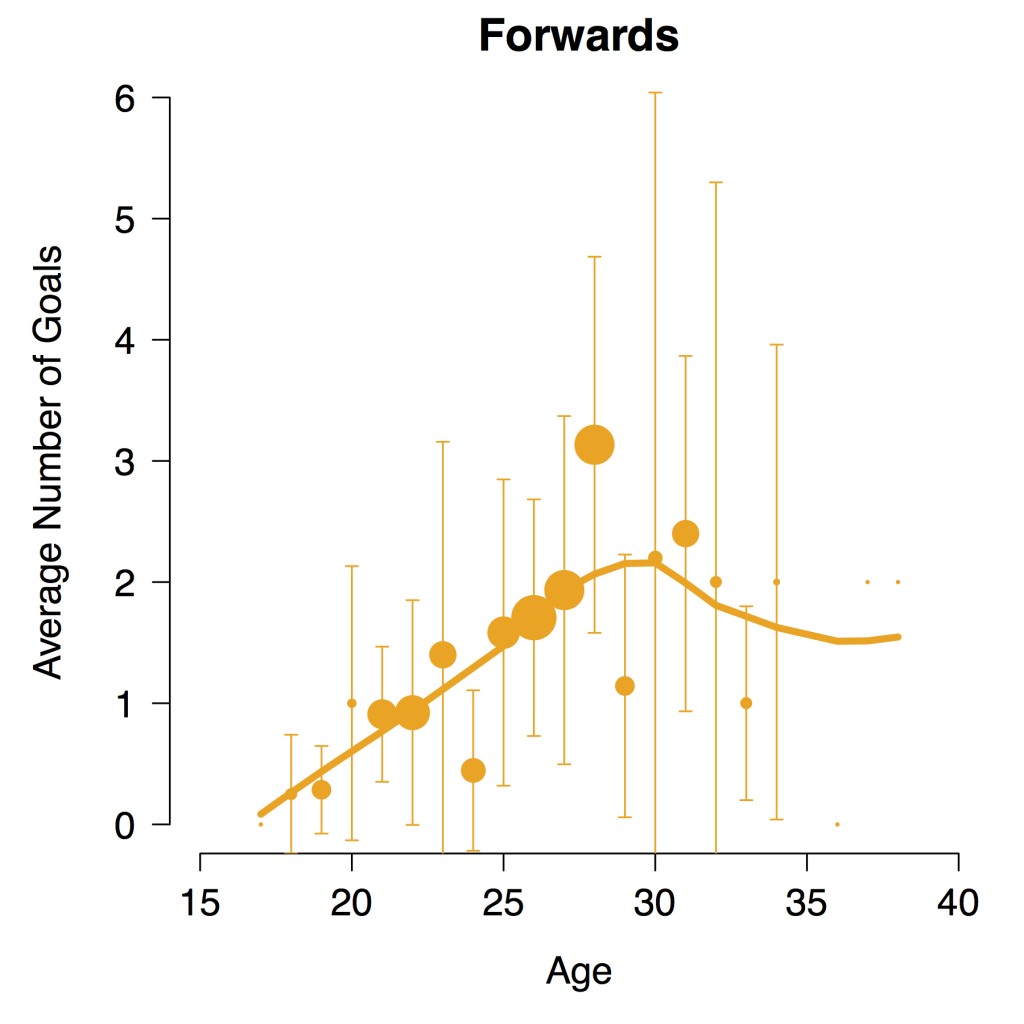At CDS, we study the life span development of performance in different domains, particularly decision making, and are interested in the interplay between, on the one hand, the gains in knowledge from a life time of experience, and, on the other, the age-related losses in physical and cognitive abilities due to biological aging. An ecological perspective on aging suggests that the result of such gain/loss interactions on performance is a function of task demands.
I’ve been trying to find examples of such task-dependent age-performance patterns and last weekend’s Champions League final gave me an incentive to look into the age distribution of soccer players and managers. Gianluigi Buffon, Juventus’ goalkeeper, at 37, was the oldest player on the pitch… Could such longevity be found in other positions?
I got the player data from the 2014/2015 edition of the tournament at UEFA.com and plotted the age distributions of players as a function of position and whether they actually played in the tournament (as opposed to just being on the roster). I also searched Wikipedia for the managers’ ages.
Here’s the 3 main points I take from this figure:
1) The results suggest that Buffon’s longevity can be matched in other positions but the age distributions do vary systematically, with Forwards being the youngest and Goalkeepers the oldest group on average. This makes sense because past research suggests that Forwards typically perform many more high intensity activity plays relative to, say, Goalkeepers. This is an example of different tasks (i.e., soccer positions) posing different challenges to aging individuals.
2) The age differences between the players that do and do not play (0 vs. > 0 Appearances) seem to suggest that aging is not only associated with losses but also gains – most likely experience.
3) The fact that players are much younger than managers suggests that there is a limit to experience offsetting physical decline. Notwithstanding, experience as a player can prove useful later on: Thirty out of 32 managers in the 2014/2015 Champions League edition are ex-professional soccer players!
One would also like to link age to actual performance. This is not always trivial because objective measures of performance are often not available. However, for Forwards in the Champions League one can look at goals scored, which I’ve plotted below as a function of age (circle diameters are proportional to the number of players in that age bracket). The results show a peak/plateau starting before 30s as would be expected from the age distribution of Forwards in the previous figure…
Ideally, one would have a full description of task demands and age-related changes in physical prowess, cognitive abilities, and knowledge, in order to make predictions about the shape of age-performance relations in other domains, such as professional occupations, something I hope to do in the near future…


Be the first to leave a comment. Don’t be shy.